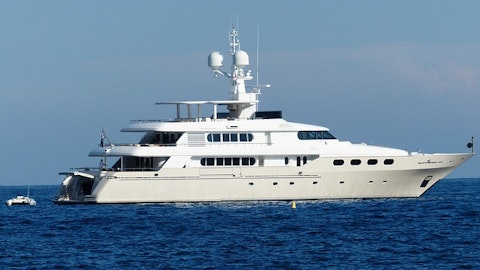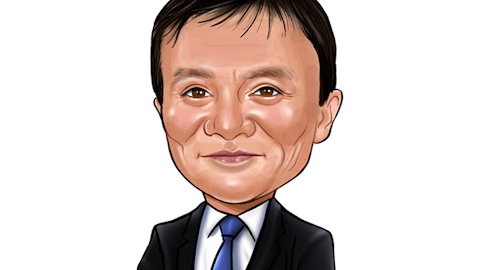In this article, we discuss the 5 most advanced countries in battery technology. If you want to read about some more advanced countries in battery technology, go directly to 10 Most Advanced Countries in Battery Technology.
5. South Korea
Average no. of patents filed between 2017-2019: 20757
The three major South Korean battery manufacturers, LGES, SK On and Samsung SDI, supply EV batteries to Tesla Inc, General Motors Co and Ford Motor Co which produce more than a quarter of the global EV battery market. LG Energy Solution has a market share of 14%. SK On has a market share of 7% and Samsung SDI has a market share of 5%. Samsung SDI is the world’s sixth-largest EV battery manufacturer. It intends to reach a 23 GWh yearly output capacity.
South Korea is a hub for manufacturing and innovating technology for batteries. Every year dozens of startups are launched in this country. Some of the innovative startups are Standard Energy, Kokam, NS, Zantropy, Elentec and EnerTech International etc.
Posco Chemical, the South Korean battery manufacturer, has expected production to rise from 30,000 tons per year to 90,000 tons per year. If its estimates are fulfilled it will be the largest capacity for a single cathode material plant globally. The capacity will be sufficient to supply batteries for 1 million high-performance EVs. The plant will focus on the production of high-nickel cathodes used in electric vehicles including nickel cobalt manganese aluminum and nickel cobalt manganese cathodes.
SK On, a South Korean battery manufacturer, revealed its battery charging technology at CES 2023. SK On claims that this technology will reduce charging time to 18 minutes for electric vehicle batteries from 30 minutes. A special coating is developed to reduce the resistance of the anode to increase the charging time. The company added that this technology is mainly focused to reduce the resistance of the anode when lithium is being injected during charging.
4. Germany
Average no. of patents filed between 2017-2019: 21193
When it comes to technology and innovation in the electric vehicle sector, Germany is one of the leading countries. It is home to some of the best electric vehicle makers including Volkswagen and Tesla. In 2019, with a €1 billion fund accessible to German businesses and an extra €500 million to promote research into current and future EV batteries, the German government is striving with the European Commission (EC) to speed up large-scale battery manufacturing in Germany and throughout Europe.
Volkswagen, a German-based vehicle manufacturer, is planning to launch a new prismatic cell design for its batteries in 2023. These batteries will be installed in Volkswagen vehicles. The company expects to have its unified cell design which will be able to power 80% of its electric vehicles by 2030.
Scientists at KTI have invented a minimally invasive technology to mine lithium in geothermal plants in Germany. Using this technology, thousands of tons of lithium could be extracted from the German and French Upper Rhine trench every year.
The government of Germany has approved a plan to spend $6.1 billion over three years to increase the number of charging points for electric vehicles across the country. The country will increase its charging stations by 14 times. Germany has 70,000 charging stations now and plans to reach 1 million by 2030. The country also plans to have fifteen million electric vehicles on the road by 2030. Currently, there are 1.5 million electric vehicles in Germany.
3. China
Average no. of patents filed between 2017-2019: 29958
Chinese companies increased their battery production from 10% of the world’s total to 50% by the year 2019. Currently, Chinese companies are responsible for 56% of the EV battery market, followed by Korean and Japanese companies. Four of the ten largest battery manufacturers are headquartered in China. China is also dominating other parts of the battery supply chain, including refining and mining of battery materials like lithium and graphite. A few of the Chinese battery companies include CATL, BYD, CALB, Guoxuan, Sunwoda, and SVOLT.
According to the Center for Strategic and International Studies, the Chinese government has invested a hefty USD 100 billion in the “new energy” car sector over the last ten years (including electric and hydrogen fuel cell vehicles). Part of what is fueling the need for EV adoption is China’s pledges to reach peak emissions by 2030 and carbon neutrality by 2060. The use of energy storage technology is also a crucial component to the achievement of China’s renewable energy targets.
From 2021 to 2022, CATL, a leading battery supplier, expanded its market share from 32% to 34%. This company is responsible for one-third of the world’s EV batteries. CATL provides lithium-ion batteries to Peugeot, Honda, Toyota, Volvo, Tesla, Hyundai, BMW, Toyota and Volkswagen. Module to Bracket (MTB) is a new battery technology introduced by CATL for heavy-duty electric trucks. This technology integrates the battery module directly into the vehicle chassis. According to the company, this battery will be able to lower the weight of the truck by 10% and enable a 40% increase in battery system utilization.
In 2022, BYD doubled its market share from last year and became the second biggest battery supplier with a market share of 12%. The market share of CALB is 4%. Guoxuan has a market share of 3%. Sunwoda has a market share of 2%. SVOLT has a market share of 1% as of 2022.
The growth of Chinese companies was driven by the demand for batteries from different car manufacturing companies. Europe, the US, Korea and other giant manufacturers of cars aim to reduce fossil fuel consumption and carbon emissions significantly by 2030. Consequently, the production of lithium has increased by more than 3500% relative to 2020 production.
2. United States
Average no. of patents filed between 2017-2019: 41138
The United States had a lithium-ion battery manufacturing capacity of 44 GWh in 2021 and it is estimated to reach 91 GWh by 2025. Currently, the US is the second largest battery manufacturer in the world. The advancement of technology is also playing a great role in the manufacturing of batteries. Most of the new and innovative technologies for batteries came from the US.
In 2020, the US govt strategized the expansion of battery research and development. The government, first, tried to accelerate production, development and public awareness about EVs utility-scale energy storage systems. Moreover, the funding for battery tech research was increased. Their main focus was to develop technologies to reduce their reliance on rare earth metals. Many American automakers are also investing billions in new battery production facilities to secure capacity for their new electric cars (EVs).
The Department of Energy is advocating a wide range of actions to strengthen domestic raw material supply and expand the nation’s capacity for lithium refining and battery production. The size of actual activity, however, is much smaller than what is required to begin catching up to China. The US is also investing in the recycling of battery materials to reduce their environmental impact. In Nov 2022, American Battery Technology Company (ABTC) won USD 10 million in funding to commercialize battery recycling technology.
Some of the largest battery manufacturing companies based in the United States are QuantumScape, A123 Systems, Enovix, Stem, SES AI, Amprius Tech, Solid Power and American Battery Technology Company. Although other countries are producing more batteries globally, the US is the hub for technology and EV manufacturing. Tesla, an EV automobile company, is a US-based company in Nevada.
QuantumScape is planning to transform energy storage with solid-state lithium-metal battery technology. These batteries will be able to provide greater energy density, and faster charging and these batteries will be safer to support the transition away from previous energy sources toward a lower carbon future. The market cap of QuantumScape is $2.31 billion
The demand for lithium-ion batteries for electric vehicles is rising significantly. It is expected to reach 9300-gigawatt hours by 2030. According to S&P Global Market Intelligence, Contemporary Amperex Technology Co. Ltd. (CATL), the largest battery supplier in the world based in China, was in discussions with its U.S.-based customers to build a manufacturing hub in North America. The biggest battery manufacturers are located in regions with high electric vehicle demand.
1. Japan
Average no. of patents filed between 2017-2019: 58950
Japan has highly profited from the increasing demand for EV batteries and consumer electronics. It is producing batteries worth nearly 930 billion Japanese yen (JPY) yearly and covers the entire battery industry by producing batteries from watch button cells to lead acid car batteries. Japan has produced more than JPY 436 billion worth of batteries for electric vehicles, 209 billion JPY worth of Nickel metal hydride batteries, and JPY 154 billion worth of Lead acid batteries. Some of the world’s biggest battery companies are located in Japan including Panasonic, Murata, Kyocera, Toshiba, ELIIY Power, FDK, Mitsubishi, and EV Energy.
Panasonic has a market share of 10%. In 2015, it was the only company to supply batteries to Tesla. It is working with Tesla to start production of its new 4680 battery, which is more than double in diameter compared to standard batteries. Panasonic has developed a new type of lithium-ion battery that uses a solid electrolyte instead of a liquid one, which is said to increase the battery’s energy density and safety. Panasonic has shipped more than 200 billion batteries across the globe since 1931. The company will triple its battery production by 2028.
Toshiba has also developed a new type of lithium-ion battery that uses a solid electrolyte instead of a liquid one, similar to Panasonic’s technology. The company has also developed a new type of lithium-ion battery that uses a nickel-manganese-cobalt oxide cathode.
In April 2022, the industry ministry of Japan announced that they are aiming for a 20% share of the global rechargeable battery market in 2030 by boosting global output capacity at Japanese companies nearly 10-fold to 600 gigawatt hours (GWh). The country requires a significant investment of over $24 billion to establish a strong manufacturing base for batteries used in electric vehicles and energy storage. Additionally, a specialist panel responsible for creating a battery strategy has set a goal to have 30,000 trained workers for battery manufacturing and supply chains by 2030.
You can also take a peek at 10 Best Stocks in Each Sector and 10 Best Regional Bank Stocks To Invest In.





